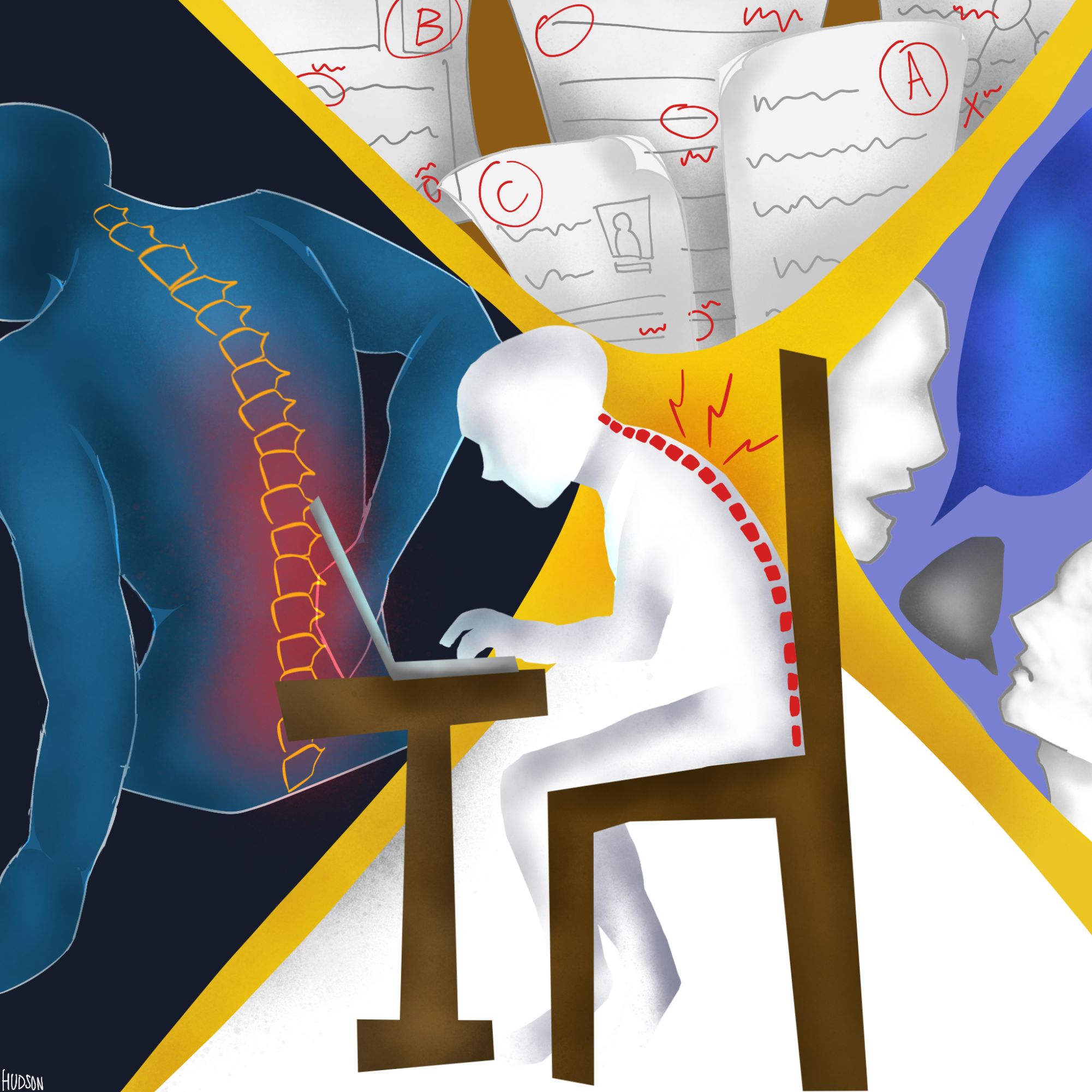After an hour of practicing the cello, junior Jeremy Yuen feels a familiar tension creeping up his back. Despite his efforts to sit upright, Yuen said he often finds himself hunched over his instrument as time wears on.
“I often found myself not sitting up straight when I practiced cello,” Yuen said. “To improve my posture, I bought a seat cushion (to) help me sit more upright and stopped my lower back from leaning backwards.”
Yuen is not alone. According to a 2018 study in the Journal of Public Health, 57.3% of students experience musculoskeletal disorders (MSDs), the National Institutes of Health reports a growing global prevalence of posture-related problems among young people, and the European Agency for Safety and Health at Work identifies static sitting, especially for extended periods, as a major contributor to the development of stress fractures and MSDs.
Stanford orthopedic surgeon Serena Hu said improper posture is more prevalent in young people because negative effects are not immediate.
“It’s easy to curl over your desk when you’re working,” Hu said. “And it’s pretty comfortable for (young) people because (they) are flexible — that’s why you adopt it.”
Consequences of weak posture include MSDs that cause neck pain and back problems. Hu said over time, poor posture can also weaken muscles, misalign the spine and lead to long-term discomfort.
“The thing that makes people have worse posture as you get older is if your bones don’t stay strong,” Hu said. “And the best thing to keep your bones strong, aside from calcium and vitamin D, is to use your bones. It could be as simple as walking regularly, biking, swimming, etc.”
To combat long-term discomfort, Yuen said he stays active through sports and outdoor activities, which help him maintain better posture overall.
“The best way to avoid bad posture is to not sit as much and get up and do things,” Yuen said. “If I’m outside and playing soccer, for example, I don’t have to worry about whether I’m sitting up straight or not.”
To ensure a healthy body, Hu said practicing a good posture at a young age can be beneficial for you when you get older.
“Stress fractures all develop in the preteen range and most are at risk while you’re still growing,” Hu said. “(So) it’s great to start thinking about these things when people are young because it helps you set up a good foundation for your future.”


